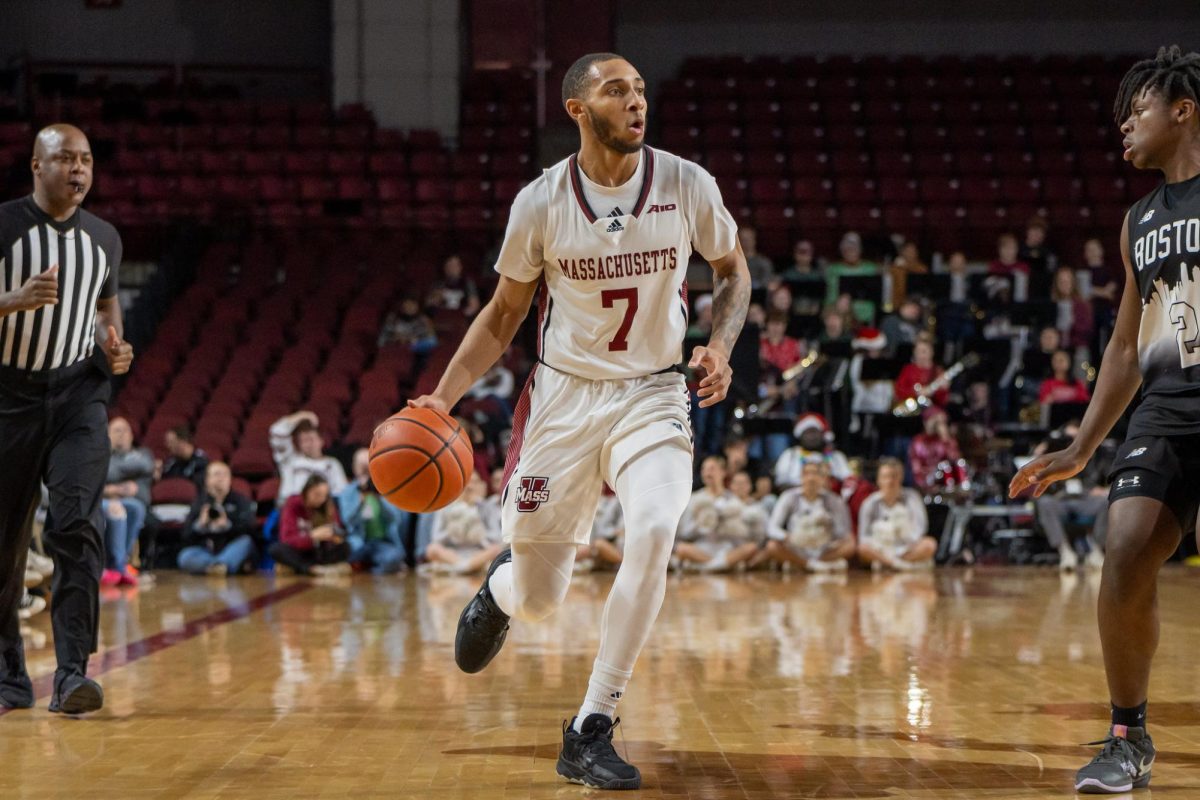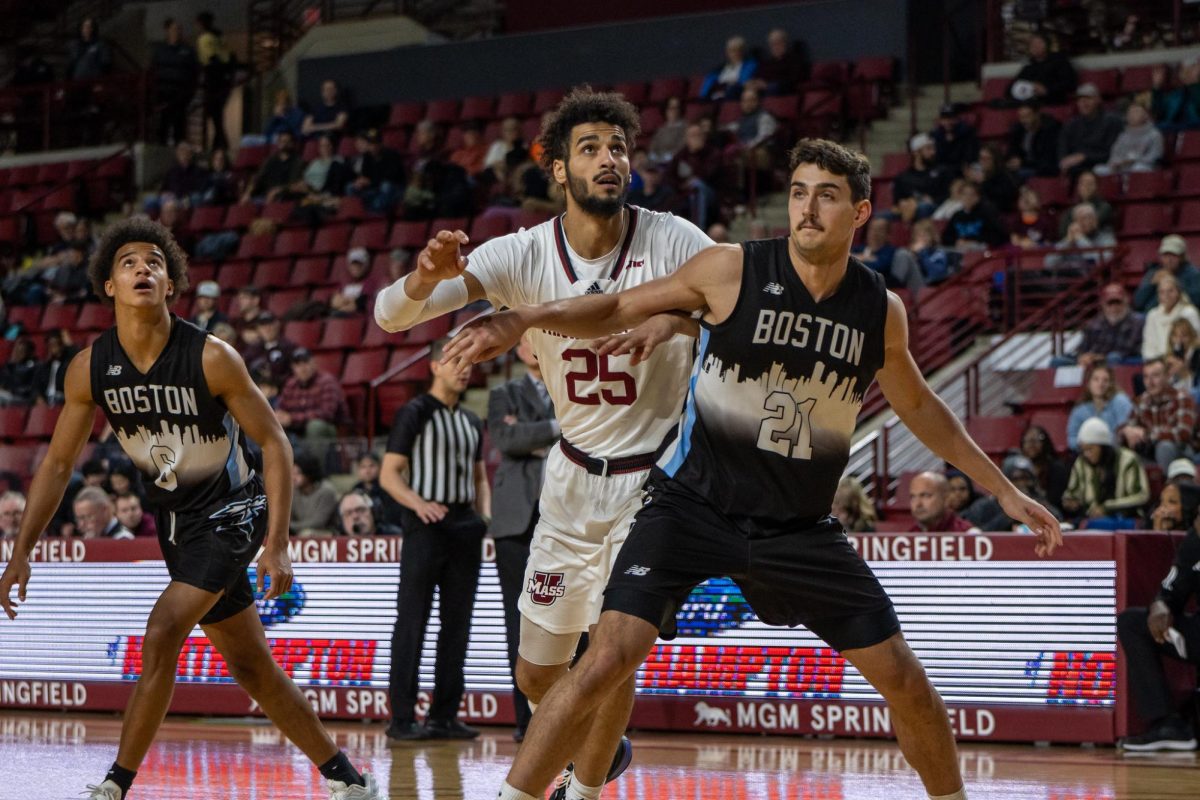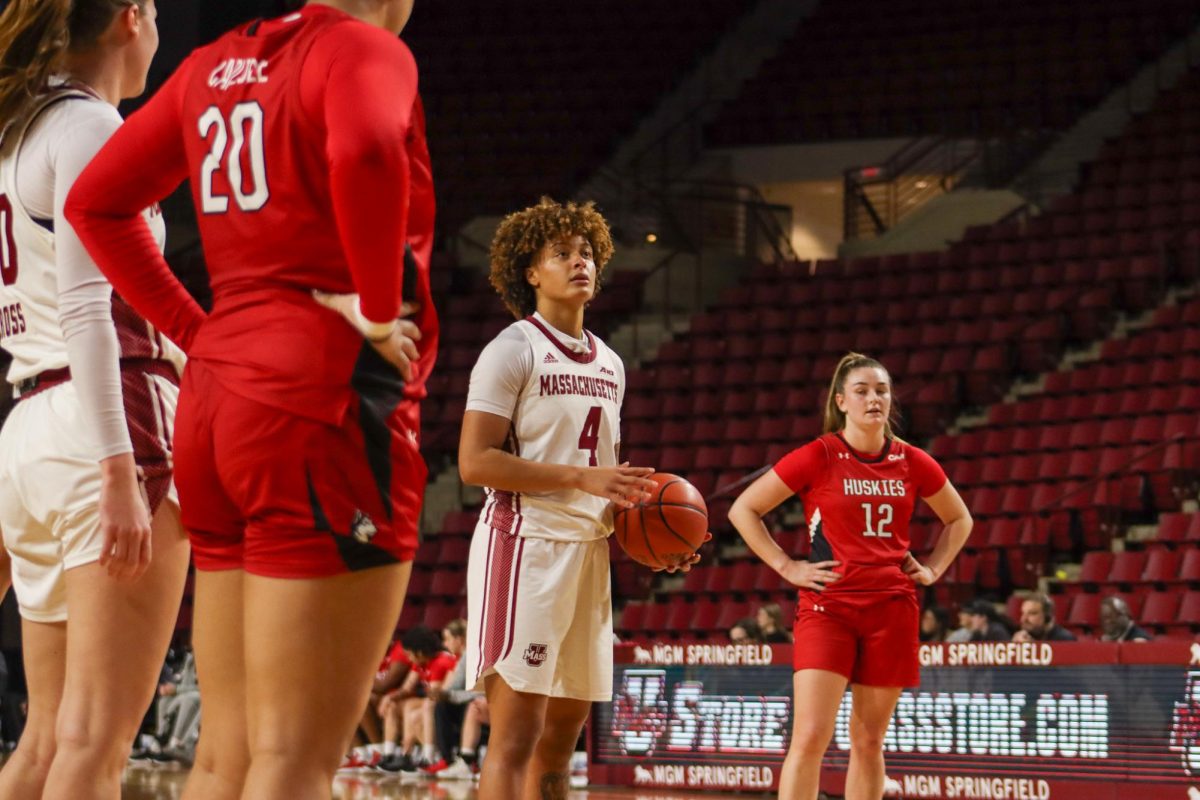The University of Massachusetts Amherst saw eight students win Fulbright scholarships this year, three more than any past year.
The eight students are Nicholas Balascio, a Ph.D. student in geosciences who will travel to Norway, Russell Boutelle, an English major who will teach English in Argentina, Caitlyn Burns, a history major who will teach English in South Korea, Amalia Etedgee, a music major who will study in Israel, Devin Fitzgerald, a master’s student who will do research in China, Niall Stephens, a Ph.D. student who will do a project in Chile, Anissa Talantikite, a political science major who will travel to Morocco to work on women’s rights, and Evan Torner, a graduate student who will study in Germany.
Fulbright program advisor Susan Whitbourne said she and her faculty committee, which evaluates the applicants’ proposals, were extremely pleased with this year’s results.
“We were very excited that we had a record year for the Fulbrights,” Whitbourne said.
“We had a particularly competitive group this year, and they did a wonderful job on their applications.We were very pleased that so many people applied, and that so many won,” said Whitbourne.
Whitbourne explained that she and her committee evaluate the students’ proposals on their “validity and feasibility,” stating that the committee attempts to determine if the proposals are a suitable fit for where and what they will be studying, and if the proposals are realistic candidates to win the scholarship.
“We rate their ability to represent the U.S. as ambassadors to other countries,” Whitbourne said, “and we also look at their maturity and adaptability to foreign cultures.”
From the UMass committee, proposals that are selected go to a national panel, then, if successful, to the national panel of the country where the applicant wishes to study.
Whitbourne said that interested students need not have a perfect academic portfolio to be realistic candidates, and she explained that often a stellar proposal can vastly outweigh near perfect grades.
“I’d hate to discourage anyone with middling grades from applying, because a strong proposal and something that fits with the country and study can really work for a student,” she said.
“It could be a 3.2, it could be a 3.9, some particular countries are super competitive,” she elaborated. “A lot of our students have had foreign experience and that helps a lot, they have shown that they have the life skills to live in that country.”
Whitbourne has been involved with the Fulbright selections for 11 years, serving as the program advisor for the last 10. She said that this year she had hoped the university would have 10 winners, but said that the results were actually fairly close, as UMass had eight winners, one alternate, and one student selected for a different scholarship.
The alternate is undergraduate Ashley Sherry, who will study public policy in Mexico. Renu Singh, an undergraduate microbiology and political science major, will study in Germany, winning a German Academic Exchange Service award.
The scholarships are for one year and are fully funded by the U.S. Department of State Bureau, of Educational and Cultural Affairs.
The winning students were thrilled at the opportunities afforded by their prestigious selection.
Russell Boutelle, an English major from Gardner, Mass., who will teach English in Argentina, called his selection a “great honor.”
“I think it’s particularly gratifying for me, as a first-generation college student and as someone whose parents have never left the country,” he said.
“I’m incredibly excited to be returning to Argentina, a country where I spent a week as part of the Latin American Studies department’s Alternative Spring Break trip in 2008, that experience was really the catalyst for my application to the fellowship.”
Boutelle said he was eager to share not only American English with Argentina, but also Massachusetts’ own brand of the language.
“I’m eager to share my experiences with the English language as an American, and our ‘wicked’ unique dialect here in New England and our generation’s incredibly complicated, ever-evolving slang,” he said.
Caitlyn Burns, a history major from Groveland, Mass., will live in Cheonju, South Korea, a city an hour and a half south of Seoul. She will teach English at an all-girls middle school and stay with a host family, serving, in her own words, as an ambassador of American culture by leading activities at the school on American culture and representing America to her host family.
Burns said that as a Korean-American, she finds the experience particularly rewarding, as she is seeing a country about which she has always wondered.
“As a Korean-American, I have always been interested in what life is like in Korea, and that definitely influenced my decision to apply,” she said.
Naill Stephens, a Ph.D. student in communications from Boston, will travel to Chile to investigate the effects of globalization on poplar politics.
Stephens said the selection “feels great,” and it will allow him to “do the research I’ve been hoping to do for my Ph.D.”
He explained that he hopes to analyze how globalization has affected protest and alternate visions, in addition to how the spread of capitalism has affected living conditions and the environment. He said there is often a rift between environmentalists and locals, and his goal is to “help them overcome those differences.”
Anissa Talantikite, a political science major from Salem, Mass., will study women’s rights and economic development in Morocco. She said the experience has already shown her “how lucky I am.”
She said the Moroccan American Commission for Educational and Cultural Exchange “does a wonderful job facilitating our immersion into Moroccan society – which is a bit more challenging to do during the holy month of Ramadan.
Talantikite is presently studying Arabic at the Arabic Language Institute in Fes, and described learning Arabic as tough. Her research will focus on how women’s labor can be incorporated into the Moroccan market, and she will focus on a cooperative group called Targanine that makes and sells argan oil. Argan oil is created from the kernels of the endemic argan tree.
“There’s a vibrant community of women’s activist groups that I’m eager to learn more about and work with,” she said. “I’m hoping to use my case-study research to imagine ways to expand global gender equality through greater economic freedom.”






